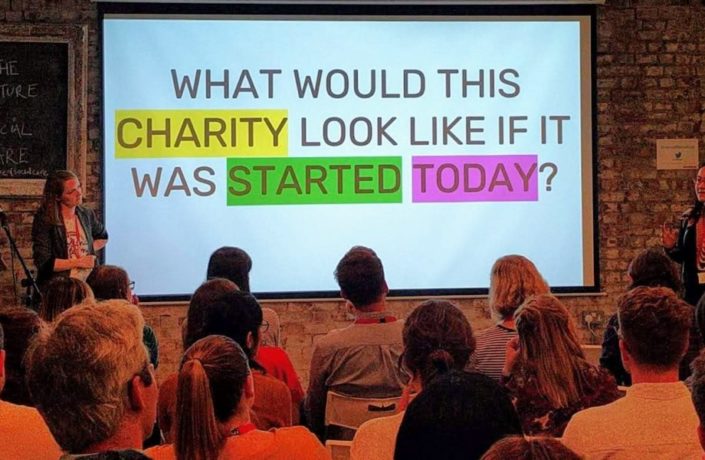 Insight
Insight


Why most “Tech for Good” campaigns fail (and how we can fix them). Technology companies and ancillary firms set up and provide hackathons, volunteer data science programs and pro bono consulting, software and services to charitable organisations. Efforts to solve critical global issues and advance altruistic causes through innovative solutions are in rich supply.
While these programs are well-intentioned—and generally well-executed—most struggle to deliver more than short-term solutions to complex problems. Global issues, such as climate change, hunger and homelessness, are extremely complicated and constantly evolving. As such, one-time solutions like code produced during a hackathon usually can’t address those problems, because they don’t evolve as the issues do.
To power sustainable “tech for good” solutions, organisations need to rethink programs. Enterprise technology providers have the power and resources to solve global problems by allowing nonprofits to leverage their technology, as well as their services, to solve challenges and create lasting value.
Here are three ways technology companies can help charitable organisations utilise new technologies to their full potential:
To start, enterprise technology companies should work with their nonprofit partners to determine what specific problem they want to solve.
Nonprofits often struggle to appropriately identify where AI can be applied within their organisations. By providing nonprofits with access to data scientists and other AI experts, tech companies can help them determine where data science can be used to solve internal problems and assess whether they have enough data to leverage AI. Having the appropriate support throughout this process can make all the difference.
As the old adage goes, “Give a man a fish, and you feed him for a day; teach a man to fish, and you feed him for a lifetime.” The same can be said of technology. Giving nonprofits a code or algorithm can be helpful in the short term, but teaching them how to use it to solve real, evolving issues can make a lasting impact.
Many corporate social responsibility solutions don’t teach leaders at nonprofits how to use the technology they’ve been given. What happens when the problem changes or the engagement runs out? Nonprofits find themselves back at square one.
Take, for example, data analysis. According to a 2018 report on nonprofit trends published by Salesforce’s research arm, more than half (53 percent) of nonprofits find it easy to collect program data, but only 47 percent say they know how to apply the data to solve problems or track improvements and performance. Knowing how a program or algorithm works can put power into the hands of nonprofits and give them the ability to not only collect the right data but apply it to solve new challenges that arise within the organization. Giving nonprofits the necessary training also gives them the flexibility to tackle different or multiple problems with the same tool.
By teaching nonprofit leaders how to develop, deploy and maintain technology solutions within their organisations, enterprises can produce long-term results that give nonprofits the ability to maintain solutions independently.
Training would not be complete without full support from the solution provider throughout the duration of the deployment.
Having a reliable team of experts to call on enables nonprofit partners to learn how to maintain, support and improve their solutions over time.
At DataRobot, we’re working to transform the traditional “tech for good” initiative by putting these ideas into practice. DataRobot’s AI for Good seeks to empower social good organisations to more effectively solve for global challenges using AI and automated machine learning. Already, we’ve seen a successful early use case with the Global Water Challenge (GWC). By applying automated machine learning, GWC and DataRobot predict which water points in rural areas are going to fail in the future in countries such as Sierra Leone, Uganda and Liberia. GWC has worked with governments in these countries to train officials and provide support so they can correctly interpret the data and use it to allocate funds to new construction, infrastructure repair and clean water initiatives.
With advancements in technology, there’s endless opportunity to make the world a better place. However, this potential can only be realised when nonprofits and other “for good” programs have the resources they need to tackle evolving, complex issues. With the proper practices in place, nonprofits, governments and other organisations can succeed in harnessing the power of tech innovation to create real global change.
Originally published at Bostinno.